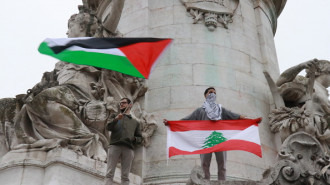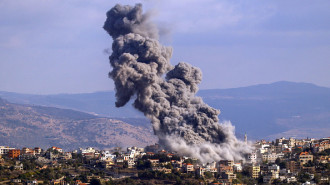Any peace deal must include Israeli control over West Bank: Netanyahu
In a meeting on Wednesday between Netanyahu and the German Foreign Minister Sigmar Gabriel, the latter confirmed Berlin is "very much in favour" of the two-state solution.
"I was very thankful to hear that of course also the government of Israel wants to have two states, but (with secure) borders," he said.
Netanyahu clarified saying that Israel's first condition would be to control security west of the Jordan river - an area that includes all of the West Bank.
"Whether or not it is defined as a state when we have the military control is another matter," he said. "I'd rather not discuss labels, but substance."
Israeli Prime Minister Benjamin Netanyahu comments have done nothing to alleviate Palestinian fears about the status of the West Bank.
Nabil Abu Rdeneh, spokesperson for Palestinian President Mahmoud Abbas, said that Palestinians would not accept the presence of "one Israeli soldier" on sovereign Palestinian lands.
"Either there will be full Palestinian sovereignty or there will be no security, no peace and no stability," he said.
It follows already heightened tensions after President Donald Trump's decision to recognise Jerusalem as the capital of Israel in December.
President Trump broke with decades of US policy in December with his recognition and decision to move the country's embassy from Tel Aviv to the contested city. Since taking office, Trump has distanced himself from the two-state solution.
Instead, he said he would support Palestinian independence only if Israel agrees, a stance rejected by the rest of the international community.
The Palestinians hoped-for-state claims all of the West Bank, east Jerusalem and the Gaza Strip, areas captured by Israel in 1967. In 2005, Israel withdrew from Gaza, but placed it under a heavy siege and settled over 600,000 people in the West Bank and east Jerusalem, making it increasingly difficult to partition the land.
Palestinians have been wary about US peace efforts led by President Trump's son in law, Jared Kushner. Trump's decision on 6 December did nothing to alleviate those fears, and Palestinians froze ties late last year.
Abbas said the United States had disqualified itself as a mediator. "We will no longer accept that it has a role in the political process," he said at the time.
Abbas' office said that "Jerusalem is the eternal capital of the state of Palestine, and is not for sale for gold or billions" with other senior officials adding that they will not be "blackmailed" by Trump's threat of aid cuts.
Palestinian officials now claim that Trump's plan will see them having a mini-state in approximately half the size of the West Bank while Israel retains all security control, as well as control over Jerusalem and its holy sites.
Both the Palestinian territories and the Gaza Strip have seen daily protests and Palestinians have clashed with Israeli troops across the West Bank and along the Gaza border. Eighteen Palestinians have been killed since Trump's announcement on 6 December.
Israel regards Jerusalem as its "undivided" capital, a position nearly the whole world rejects saying its status should be determined in peace talks with the Palestinians.
Under international law, East Jerusalem is considered occupied Palestinian territory.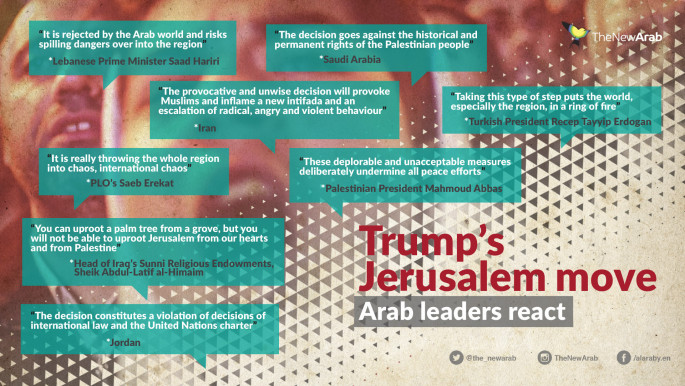

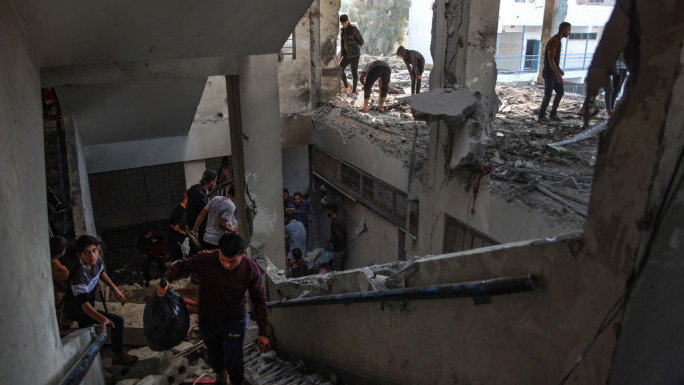
![President Pezeshkian has denounced Israel's attacks on Lebanon [Getty]](/sites/default/files/styles/image_684x385/public/2173482924.jpeg?h=a5f2f23a&itok=q3evVtko)

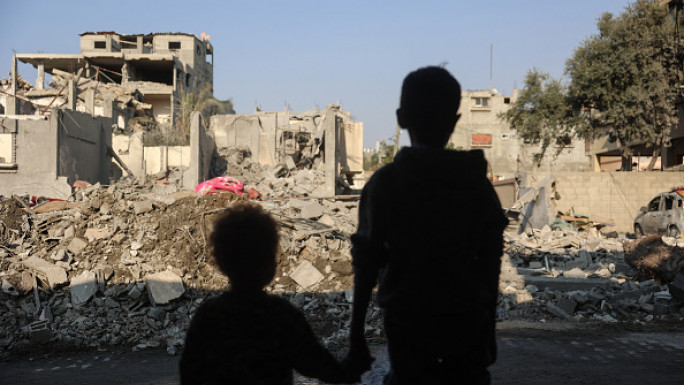
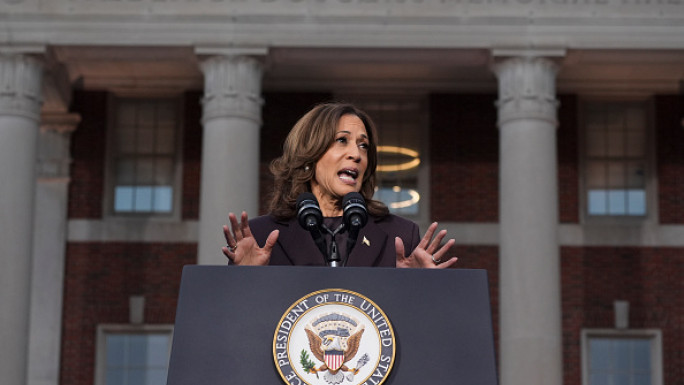
 Follow the Middle East's top stories in English at The New Arab on Google News
Follow the Middle East's top stories in English at The New Arab on Google News
